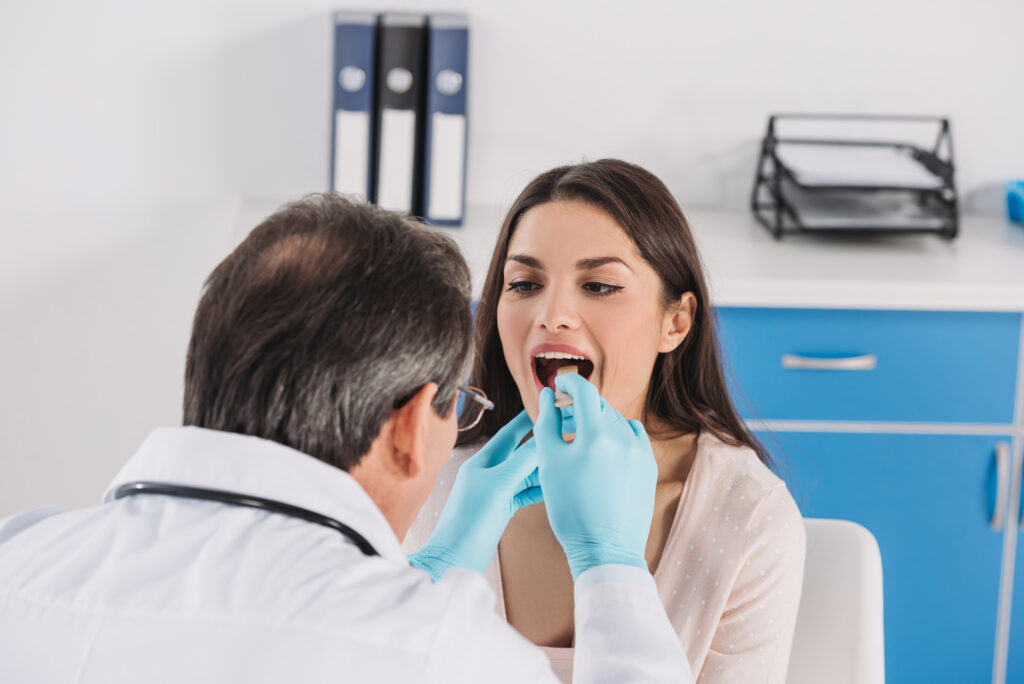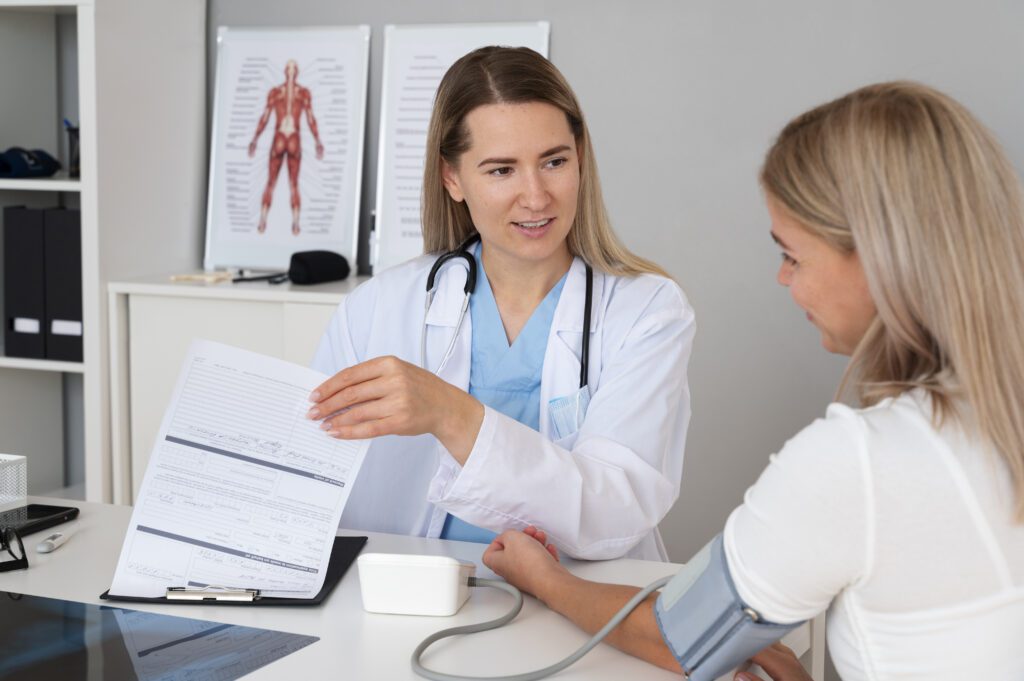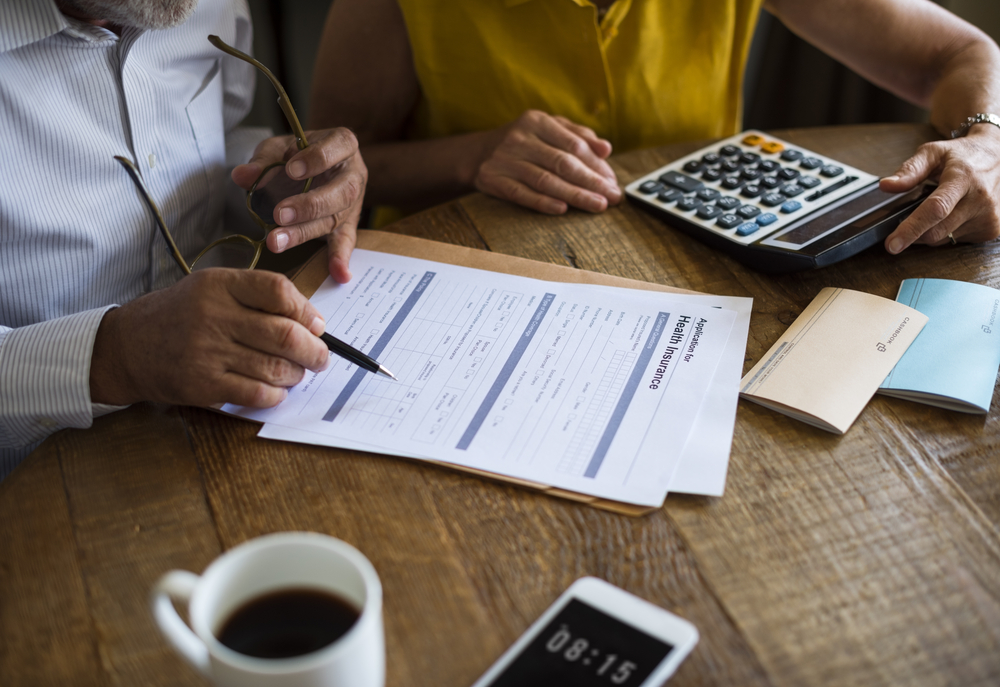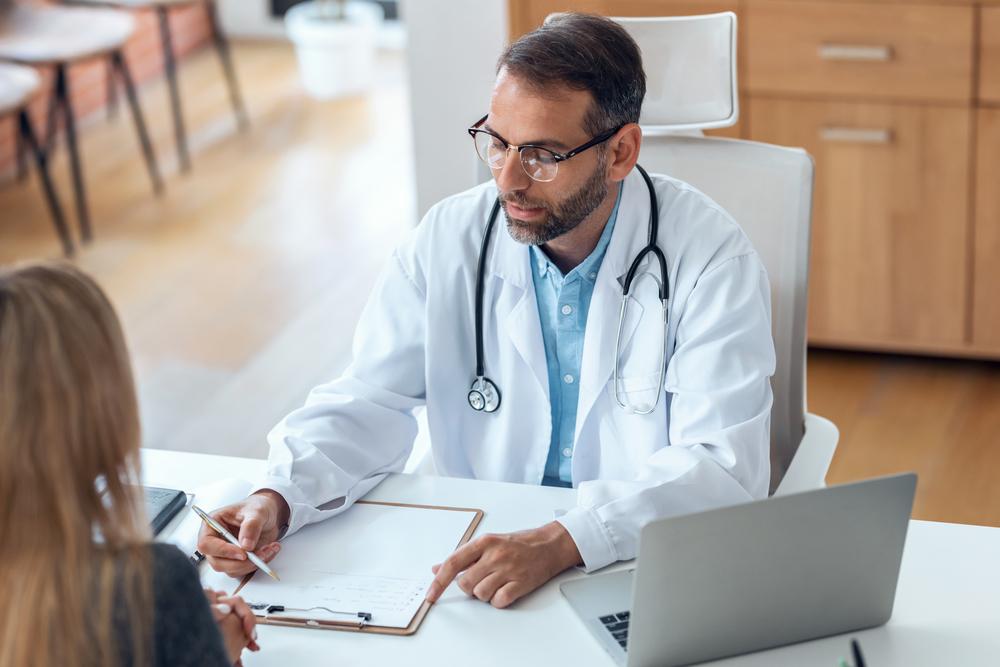Registering with a doctor in the Netherlands can be quite a confusing process compared to how it works in your home country. Is the practice accepting patients? Do you have all the required documents? Where’s your pharmacy?
Don’t worry, we’ll guide you through the whole process, step by step.
- 🤷♀️ Why should I register for a doctor in the Netherlands?
- 📍 Step one: scout for a general practitioner (GP) near you
- 🙋♂️ Step two: check whether the doctor accepts new patients
- ✍🏻 Step three: sign up for health insurance (if you haven’t already)
- 📃 Step four: gather the required documents
- 🧑⚕️ Step five: fill out an intake form or attend an intake appointment
- 💊 Step six: register with a Dutch pharmacy
- 🤔 How to register for a doctor in the Netherlands: Frequently Asked Questions
Before we begin, however, let’s quickly run through why registering for a doctor in the Netherlands is so important.
Why should I register for a doctor in the Netherlands?

In the Netherlands, you can’t just show up at any doctor’s office with a fever or stomach pain. You first need to register with a specific general practitioner (GP), or huisarts, as they’re called in the Netherlands.
Why? Because if you’re not registered, they may refuse to help you if you aren’t considered an ‘urgent case.’
Registering with a GP is essential and a gateway to medical care in the Netherlands. For example, if you want to see a specialist, you first need to consult with your GP and have them refer you.
READ MORE | The ultimate guide to going to the doctor in the Netherlands in 2025
Plus, you’ll have someone to turn to who knows your medical history and can give you the best help.
For this reason, it’s best to register with a GP as soon as you move to the Netherlands. It can be a lengthy and tiresome process — and no one wants to sit at home with a fever, scouring the internet for a doctor to take them in. So, get going! 👇
Step one: scout for a general practitioner (GP) near you

First things first, do some research and identify the doctors in your area. In the Netherlands, GPs often only accept patients within a 15-minute perimeter of the practice. Why? In the case of a medical emergency, your doctor can provide you with medical care quickly.
READ MORE | 5 things that will shock you when you arrive in the Netherlands
There are a few ways to go about finding a GP in your area.
Check comparison websites
You can use comparison websites, such Zorgkaart Nederland or Kiesuwhuisarts to find a practice near you. With these websites, you simply enter your home postcode, and the site lists all the practices closest to you.
Note: These websites are in Dutch, but you can use your browser’s translation tool to translate them!
Use the right Google search
Another way to find a doctor’s practice near you is to do a Google search. In the Netherlands, the best way to get results is by searching your postcode or city and the word ‘huisarts’.
Just make sure to check the practice’s website or give them a call to ask that they take patients from your exact postcode!
READ MORE | Going to a doctor in the Netherlands? Here’s the ultimate guide
The catch with this system is that there’s a limited number of doctors that you can register with, often making the search a bit of a lengthy task.
In some cases, you may be forced to register with a doctor’s practice that’s quite far from your home.
That’s where some other options come into play — and they can be lifesavers for internationals.
Consider alternative options
A few big cities in the Netherlands have ‘international health centres’ that accept new patients based on city-wide postcodes. So, for example, no matter where you live in The Hague, you’re eligible to register at the International Health Centre The Hague.
Another alternative option is to skip all these steps and use telemedicine services, which can find you an English-speaking doctor and set up an online consultation within minutes.
With online appointments, you avoid long commutes, full waiting rooms when feeling sick, and you have someone to turn to if you haven’t managed to register with a Dutch doctor yet.
Step two: check whether the doctor accepts new patients

Now that you’ve found a GP that matches your home address, the next step is to make sure that the practice is actually taking on new patients.
As we’ve pointed out above, there are a limited number of doctors to treat patients in the Netherlands.
Many Dutch GPs reach full capacity quickly, especially in late summer. This is why it’s very important to register for a doctor as soon as you arrive in the country.
If a practice is no longer taking patients, it will usually say so on the practice’s website. If there’s no message, call or e-mail the practice to find out if they can take you.
READ MORE | All you need to know about going to the hospital in the Netherlands
While you’re on the phone with the doctor’s office, it’s also important to take the opportunity to tell them if you’re a non-Dutch speaker.
Most GPs in the Netherlands speak English, but it’s always good to check this in order to ensure a fully comfortable medical care experience.
Step three: sign up for health insurance (if you haven’t already)

So, you’ve found a huisarts that you want to register with, great! Now it’s time to sign up for health insurance if you don’t have some already. Health insurance is essential in order to complete your registration with a Dutch doctor, and it is also mandatory in the Netherlands.
Although health insurance can sound complicated, you can generally rely on these rules to figure out what type of health insurance you need:
- If you’re working in the Netherlands: it’s compulsory for you to take out Dutch health insurance
- If you’re an EU student (and not working): you may use your home country’s insurance with the European Health Insurance Card (EHIC) or take out private travel insurance. You can also get standard Dutch health insurance.
- If you’re a non-EU student (and not working): you will have to get private health insurance, as you are not eligible to apply for basic Dutch health insurance and you don’t have access to an EHIC card.
If you are required to take out Dutch health insurance, these are some of the most popular providers for internationals in the Netherlands:
What does Dutch health insurance cover? Well, that all depends on the type of package you’re paying for.
READ MORE | 9 things you need to know about Dutch health insurance as an international
However, basic Dutch insurance packages cover costs for visits and treatments by a GP, most prescribed medication, and hospital stays.
Step four: gather the required documents

Now, the next step in registering for a Dutch doctor is to rummage around all those stacks of papers and find a few documents that you must provide.
What do you need to register with a GP? Here’s a checklist of three things to have at hand:
- Proof of identity (a passport, residence permit or EU identity card)
- Your BSN number
- Your health insurance details
Your BSN number is an eight or nine-digit-long number given to you by the Dutch municipality when you registered your address after moving to the Netherlands.
When it comes to your health insurance details, you will usually need your insurance policy number (polisnummer) and the name of your health insurance provider.
Step five: fill out an intake form or attend an intake appointment

You’re almost there! One of the last steps to registering with a doctor in the Netherlands is filling out the intake form using all the documents you have gathered.
All you’ll need to give them are your personal information, such as your name and address, and important bureaucratic details, such as your BSN number, and health insurance number.
You can usually find an online intake form on the practice’s website. However, in some cases, you might have to hand in a hard copy at the doctor’s office.
The doctor may also ask you to attend an intake appointment to get to know you better, ask about your medical history, and any medical concerns you have. This is a great opportunity to ask any questions and get familiar with the Dutch healthcare system.
Step six: register with a Dutch pharmacy

Ta-daa, you’ve officially got a Dutch GP. One important last step is to register with a Dutch pharmacy in order to collect your meds and get healthy!
In the Netherlands, everyone registers with one particular pharmacy — usually the one closest to their home or doctor’s office. This means that they’ll have all your medical information and can provide more advice for your personal situation.
READ MORE | Sick leave in the Netherlands: the easy guide [2024]
All you’ll need to register with a Dutch pharmacy is proof of identity and your insurance information. The rest of the process should be automatic.
By registering with a particular pharmacy, the process of receiving your medication is simplified. After an appointment with your GP, your prescription should arrive straight in your pharmacy’s mailbox, where you can then pick it up.
While registering for a doctor in the Netherlands may seem like quite a big task, it’s perhaps one of the most important things you can do when you first arrive in the country.
After following these steps, you can relax and be at ease. You’re completely prepared for those not-so-nice moments to go smoothly.
How have you found registering with a general practitioner in the Netherlands? Tell us about your experience in the comments below!
How to register for a doctor in the Netherlands: Frequently Asked Questions
Is it compulsory to register with a Dutch doctor?
It isn’t required to register with a Dutch doctor by law, but it’s highly recommended as a doctor may refuse you treatment if you aren’t registered with them.
Do I have to pay every time I visit a doctor’s appointment in the Netherlands?
Basic Dutch health insurance covers the cost of GP consultations in the Netherlands, so you shouldn’t have to pay anything when attending a doctor’s appointment.
What do I need to register with a Dutch doctor?
You will need your proof of identity (passport or EU identity card), your BSN number, and health insurance details to register with a Dutch doctor.
Do internationals have to register with a Dutch doctor?
Internationals don’t have to register with a doctor in the Netherlands. There are many other options, such as international health centres and online GP services. However, it is recommended that you register with a Dutch doctor to make the process more smooth.






Hi, I read all the document but couldn’t know how to register, (we are a family of four living in Amsterdam 1018 ZC ), if you please can help me find the form to fill & register .
Thank you in advance,
Have a good day.